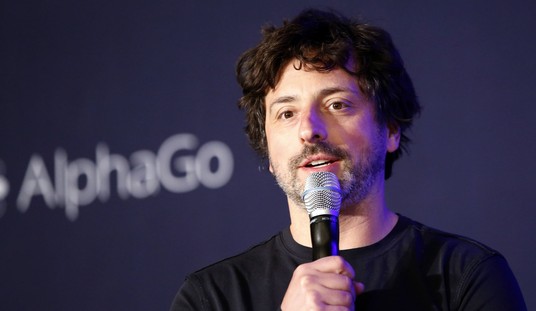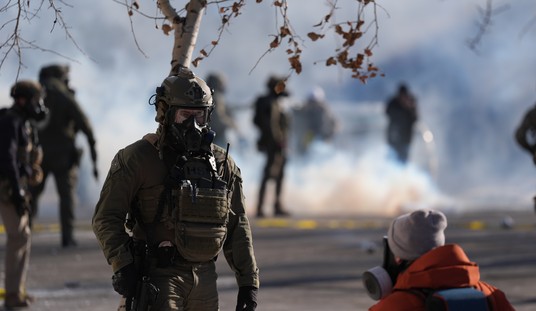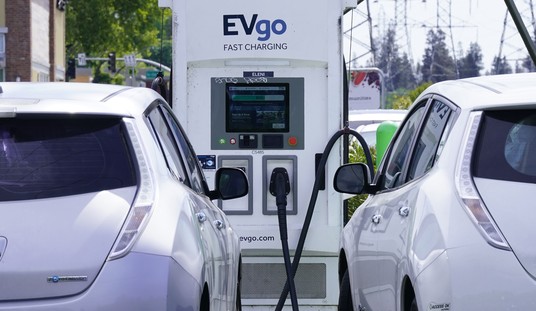Vox published a piece Monday by Zach Beauchamp which argues that classical liberalism in under attack from both the left and right. The piece offers an interesting look at the issue but it won’t surprise you to learn that Beauchamp believes the right is the greater threat to liberalism. I think he’s wrong about that but to explain why I’ll need to breeze through the set up for his argument.
First, let’s be clear about what Beauchamp means be liberalism. He defines it as “democracy, the rule of law, individual rights, and equality.” He’s not talking about ordinary partisan liberalism but what he terms the “operating system” that undergirds the left-right divide:
Bush-era American conservatism was a right-wing species of liberalism; what Americans call “liberalism” is a relatively modest form of left-liberalism…
To challenge liberalism is thus to not merely engage in ordinary political argumentation. It is to call into question the entire operating system that defines the world’s democracies. It is, by its nature, a radical claim.
Beauchamp argues that the people who are challenging or threatening these fundamental ideas are populists:
By one count, illiberal right-wing populists controlled the governments of least 11 different countries in 2018; in 1990, they controlled none.
If you click through the link, the piece he’s referring to explicitly says there were four populists in power in 1990 and that there were 20 as of 2018. In any case, it’s worth noting that some of the populists being considered aren’t of the right-wing variety. Nicolas Maduro and Daniel Ortega are listed as populists in power, though Beauchamp never mentions this.
So who does Beauchamp identify as threats to this broad consensus? On the right, he says it’s mostly Catholics who are to blame:
The key proponents of this view are heavily (though not exclusively) Catholic; many draw from their faith’s long tradition of anti-liberal thought. They have a small presence in the academy — Notre Dame political theorist Patrick Deneen and Harvard legal scholar Adrian Vermeule, for example — but are much less visible in the professoriate than socialists.
The right-leaning anti-liberals are more often found in the punditry, conservative think tanks, and even in the ranks of actual political parties (particularly in Europe). The Christian publication First Things is a particular hub of media activity for these anti-liberals, as is the American Conservative magazine. Sympathetic writers can be found at outlets ranging from the New York Times to National Review to the New York Post. Sen. Josh Hawley (R-MO) is a conservative anti-liberal; on the far right, anti-liberals include Hungarian Prime Minister Viktor Orbán and Polish European Parliament member Ryzard Legutko…
They believe that liberalism’s vaunted neutrality — its claim to respect all citizens’ freedom to follow their own paths in life — is a sham. Liberalism can only truly tolerate belief systems that cohere with its vision of freedom, and will actively attempt to stamp out worldviews that it concludes are hostile to that ideal. In the right anti-liberal imaginary, liberal tolerance is fundamentally intolerant.
Hence attempts to force Hobby Lobby’s insurance to cover birth control and Christian bakers to make cakes for gay weddings…
I don’t know if I’d go so far as to say the left’s tolerance is fundamentally intolerant but it’s certainly not equally tolerant to all. There seems to be no hesitation about mocking the faith of Christians. Just a decade ago that was all the rage. There was a publishing boom around new atheism and many think-pieces about the threat of “dominionists,” but the number of progressives who’ve said or written a bad word about Islam or Muhammad can be counted on one hand and even then it’s usually followed by a backlash from other progressives.
There’s also something to be said for the individual freedom of Christian bakers. After all, the Supreme Court did decide last year (in a decision written by Justice Kennedy) that baker Jack Phillips was religiously discriminated against by the Colorado agency that looked into his case. Does Beauchamp believe that Justice Kennedy, the Court’s former swing-voter, was at war with liberalism?
But where Beauchamp’s analysis really falls down is when he considers the threat posed by the left. I think he identifies the threat correctly but he immediately downplays it in a way that suggests he’s not interested in pursuing this line of inquiry very far:
The core concepts of the leftist narrative have been worked out for decades by Marx-influenced scholars like the University of Pennsylvania’s Adolph Reed Jr., the New School’s Nancy Fraser, and the City University of New York’s David Harvey. It’s become prominent thanks to the emergence of vibrant leftist magazines like Jacobin and its adoption by prominent public intellectuals like Mishra…
So long as capitalists are free from democratic constraint, leftists argue, liberal democracy is on dangerous footing. The super-rich use the power their accumulated wealth provides to influence political life, rearranging policy to protect and expand their fortunes. The rise of neoliberalism is, per the socialist writer Peter Frase, this process in action: proof that capitalism will invariably corrupt liberalism’s promise of freedom and equality.
For all their anti-liberal rhetoric, virtually none of today’s serious left critics of liberalism are Stalinists or Maoists — that is, opponents of democracy itself. They believe in liberal rights like freedom of expression, and pursue their revolutionary agenda through social organizing and democratic elections.
First of all, wow! That’s quite a bar you’ve set for the anti-liberals on the left. I mean, he can’t even say this is true of all left critics of liberalism, only of the “serious” ones. But can’t we equally say that none of today’s serious right-wing critics of liberalism are Hitler? If the standard being applied is that someone isn’t really an anti-liberal unless they’ve killed several million people to prove the point then I don’t think the writers at First Things are really that close to the line. It seems to me that two very different standards are being applied here.
Secondly, remember a few paragraphs earlier when I mentioned that Beauchamp never bothered to point out that some of the populists he was warning us about were actually democratic socialists? I have to wonder if that oversight was accidental because it really undercuts his point. In fact, some of today’s left critics of liberalism, like Daniel Ortega and Nicolas Maduro, are getting harder to distinguish from Stalin or Mao. You could even argue that Chinese Communism represents a sustained criticism of classical liberalism from the left.
And it’s not just foreign dictators. If you set the bar for anti-liberalism a little below Stalin, we’ve recently had presidential candidates on the left discuss plans to have “gun buybacks” which is a polite way of saying confiscation under threat of jail. Other priorities on the far-left agenda include court-packing, a favorite among dictators (like Maduro).
We also have far-left support for Antifa which goes far beyond the number of people actually wearing masks and breaking things in the streets. This is a group which intentionally resorts to political violence, yet they get defended and applauded by many on the left and even compared to veterans landing at Normandy by some journalists.
If you look, it’s not hard to find illiberalism on the left. Beauchamp mentions Jacobin favorably. My guess was that I could bring up the site and find some example of illiberalism on the current home page. I was not wrong:
So do the math on this. The UBI Sawicky describes requires $3.2 trillion while capital’s share is $5 trillion. It looks like the UBI already exists. It is just very unevenly distributed.
Liquidating the capitalist class will of course be difficult to pull off politically, but it is important that we distinguish between political difficulty and what is possible as a policy matter.
Again, it’s not Stalin. He’s not suggesting we liquidate the Kulaks. But what he is contemplating seems as anti-liberal in its intent as anything you’ll find at National Review.








Join the conversation as a VIP Member